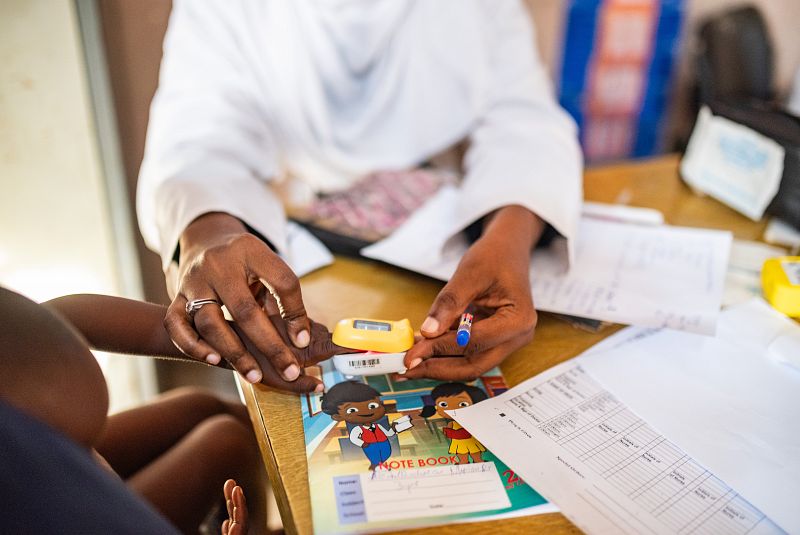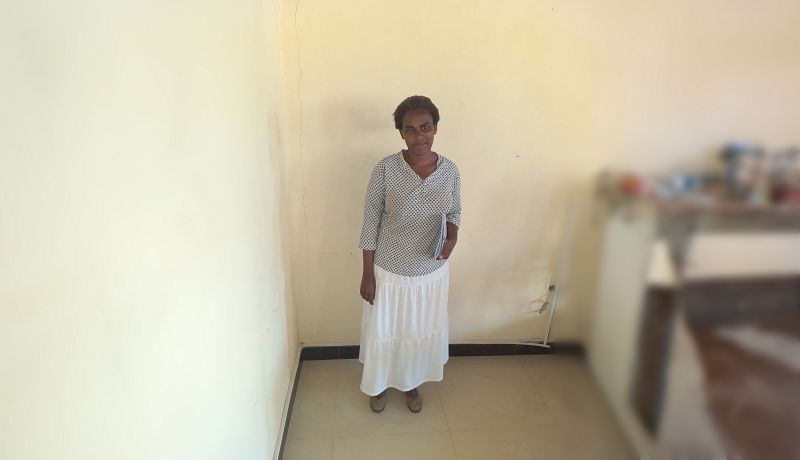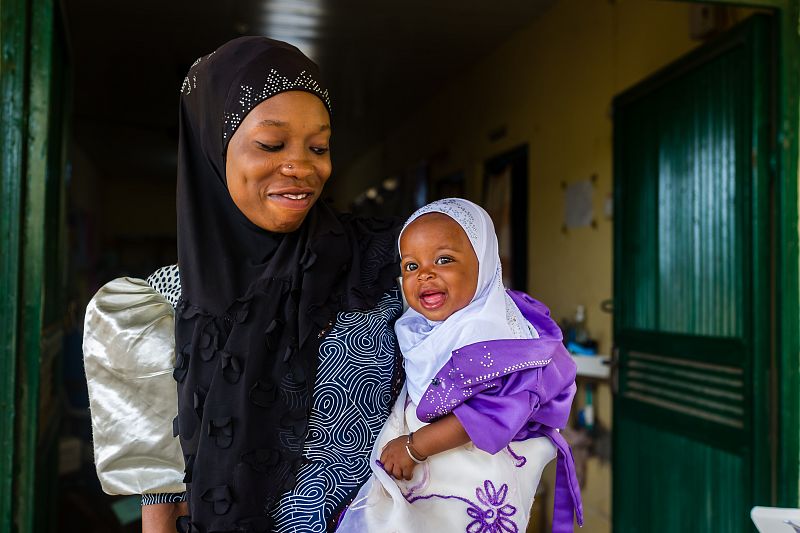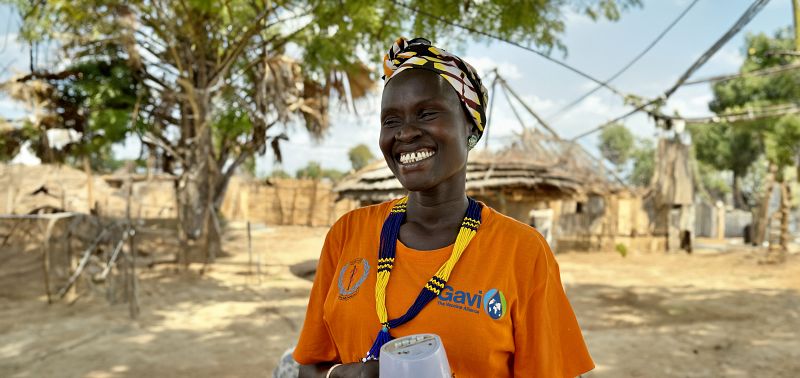Publications
Explore our publications to find useful evidence, lessons and recommendations from our work across Africa and Asia
Type
- Advocacy and positioning
- Advocacy briefs
- Advocacy reports
- Annual reviews
- Brochures
- Capacity statements
- Position statements
- Conference
- Briefing notes
- Posters
- Presentations
- Guidance and toolkits
- Guidance
- Training materials
- Learning
- Case studies
- Infographics
- Insight briefs
- Learning briefs
- Learning papers
- Newsletters
- Research and Technical
- Journal articles
- Project briefs
- Project reports
- Research briefs
- Synopses
- Technical briefs
Keyword
- ASTMH
- Advocacy
- COVID-19
- Capacity development
- Case management
- Case study
- Chemoprevention
- Child survival
- Climate
- Community delivery
- Costing and economic impact evaluation
- Data-informed decision-making
- Diagnosis
- Digital health
- Elimination
- Evidence generation
- Gender
- Genetic modification
- Health financing
- Health system strengthening
- Learning
- Logistics
- MNCH
- Malaria in pregnancy
- Monitoring and evaluation
- PMC
- Philanthropy
- Policy development
- Private sector
- Quality improvement
- Research
- Resistance management
- SBC
- SDGs
- SMC
- Scaled implementation
- Scholarships
- Surveillance
- Treatment
- Universal health coverage
- Urbanisation
- Vaccines
- Vector control
- Webinars
- iCCM
Diseases
Country
Language
Reset all search optionsCurrent search filters (75 results match ALL terms):
Child and maternal health
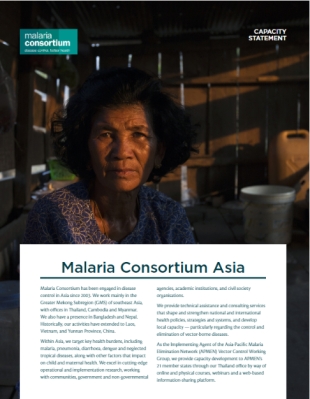 23/05/2022
Capacity statement
23/05/2022
Capacity statement
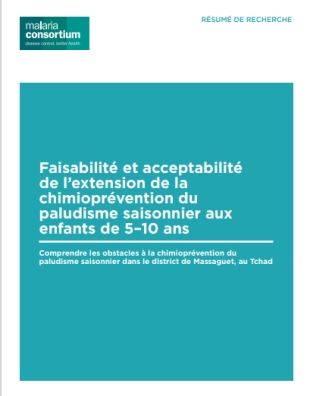 27/08/2021
Research brief
27/08/2021
Research brief
 06/04/2020
Journal article
06/04/2020
Journal article
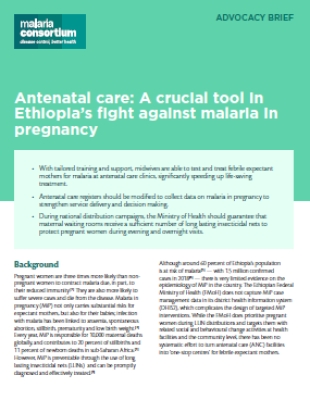 07/02/2020
Advocacy brief
07/02/2020
Advocacy brief
 05/12/2019
Journal article
05/12/2019
Journal article
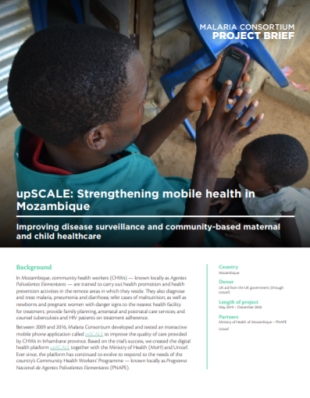 12/11/2019
Project brief
12/11/2019
Project brief
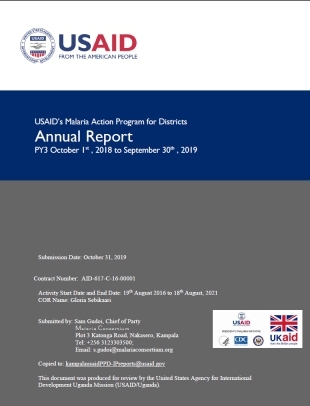 30/10/2019
Project report
30/10/2019
Project report
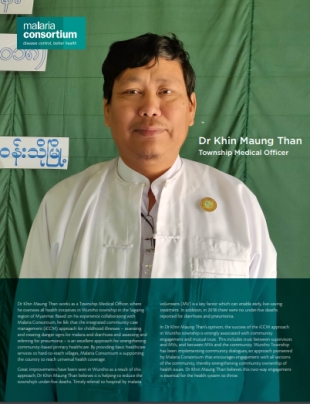 14/06/2019
Case study
14/06/2019
Case study
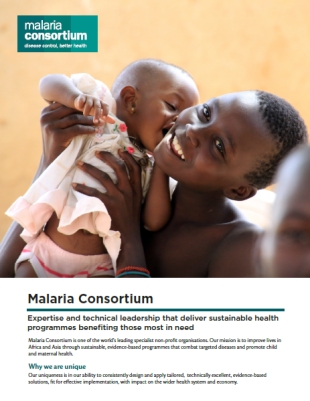 30/03/2019
Capacity statement
30/03/2019
Capacity statement
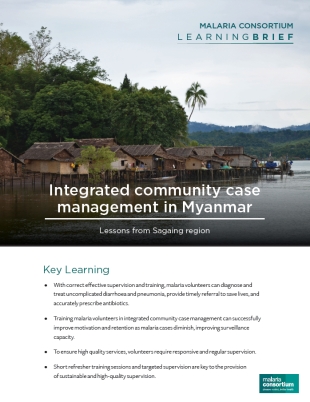 29/11/2018
Learning brief
29/11/2018
Learning brief
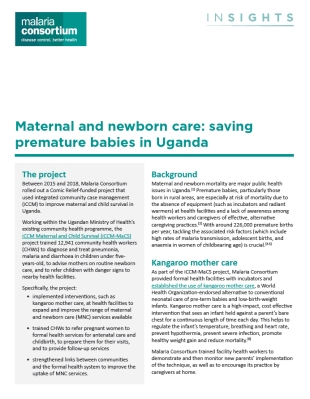 24/09/2018
Insight brief
24/09/2018
Insight brief
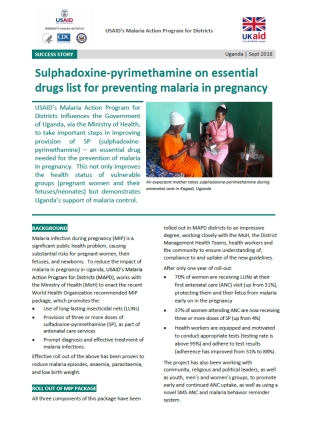 15/09/2018
Case study
15/09/2018
Case study
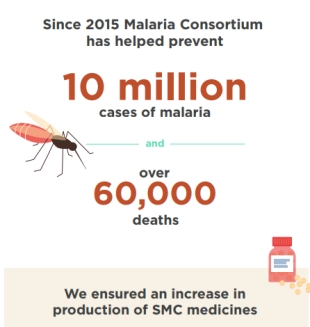 30/08/2018
Infographic
30/08/2018
Infographic
 19/07/2018
Journal article
19/07/2018
Journal article
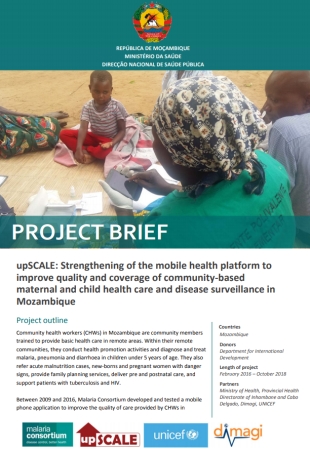 15/05/2018
Project brief
15/05/2018
Project brief
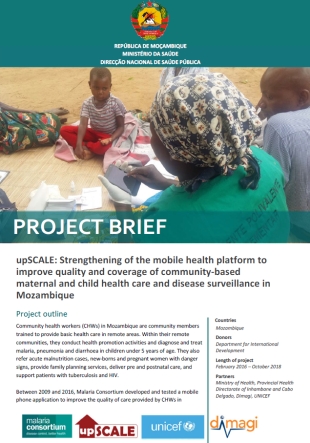 15/05/2018
Project brief
15/05/2018
Project brief
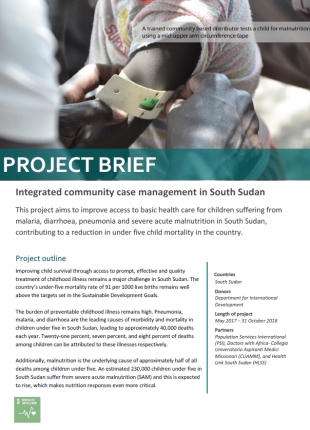 03/05/2018
Project brief
03/05/2018
Project brief
 12/04/2018
Journal article
12/04/2018
Journal article
 22/03/2018
Journal article
22/03/2018
Journal article
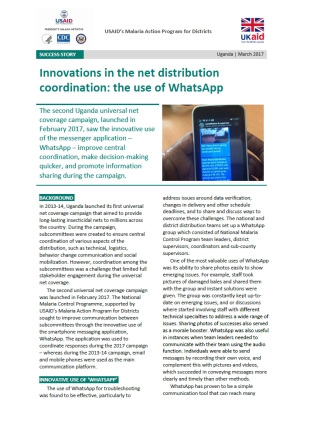 10/03/2018
Case study
10/03/2018
Case study
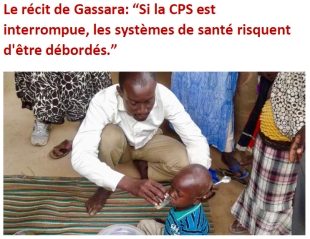 06/03/2018
Case study
06/03/2018
Case study
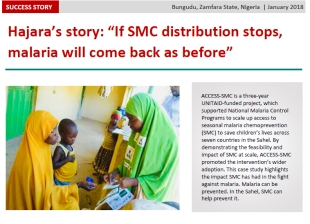 06/03/2018
Case study
06/03/2018
Case study
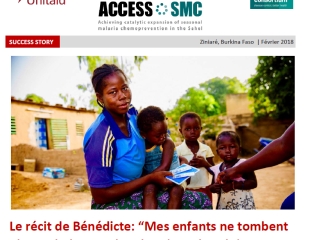 05/03/2018
Case study
05/03/2018
Case study
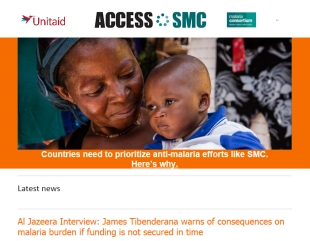 28/02/2018
Newsletter
28/02/2018
Newsletter
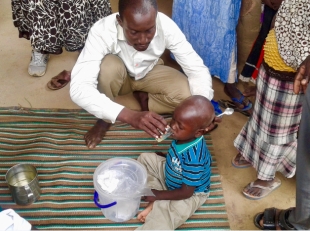 27/02/2018
Case study
27/02/2018
Case study
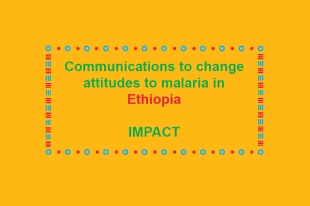 08/02/2018
Infographic
08/02/2018
Infographic
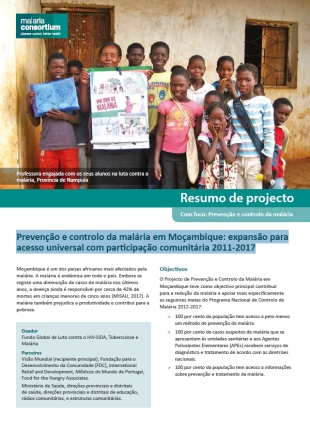 07/02/2018
Project report
07/02/2018
Project report
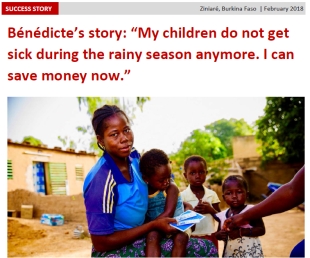 02/02/2018
Case study
02/02/2018
Case study
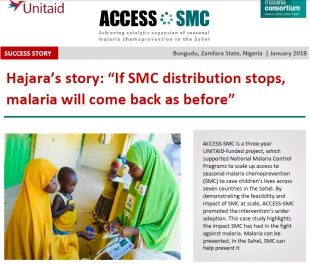 29/01/2018
Case study
29/01/2018
Case study
 07/12/2017
Newsletter
07/12/2017
Newsletter
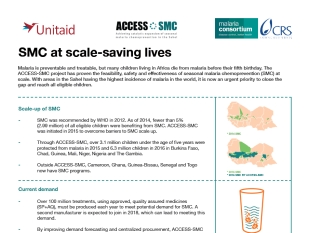 13/11/2017
Technical brief
13/11/2017
Technical brief
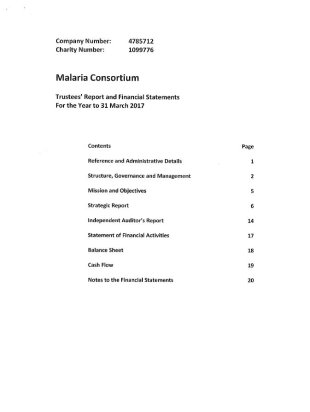 17/10/2017
Annual review
17/10/2017
Annual review
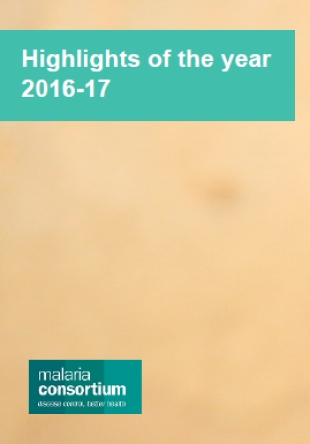 17/10/2017
Annual review
17/10/2017
Annual review
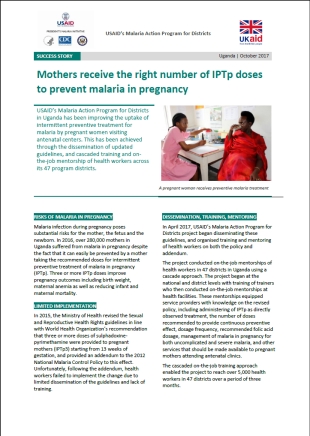 15/10/2017
Case study
15/10/2017
Case study
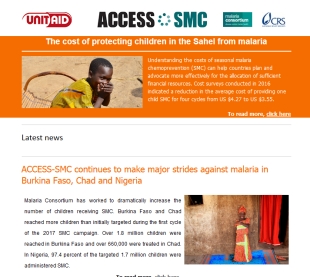 29/09/2017
Newsletter
29/09/2017
Newsletter
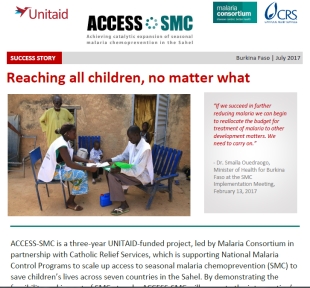 31/07/2017
Case study
31/07/2017
Case study
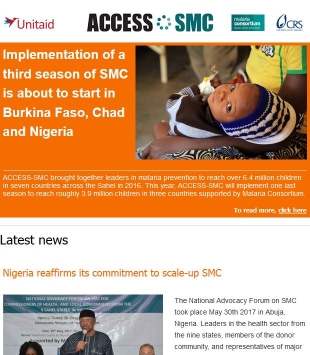 29/06/2017
Newsletter
29/06/2017
Newsletter
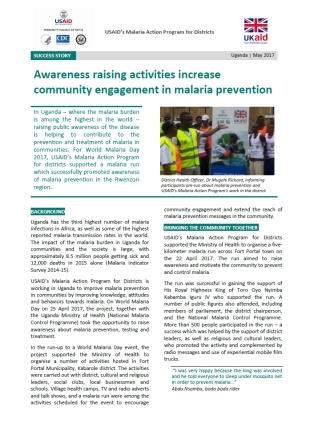 02/05/2017
Case study
02/05/2017
Case study
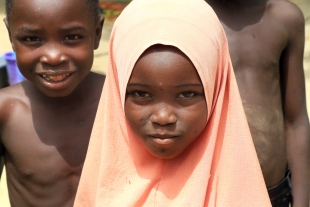 25/04/2017
Newsletter
25/04/2017
Newsletter
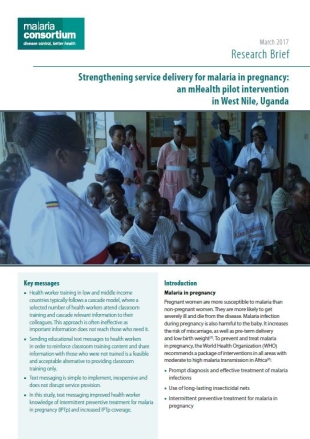 29/03/2017
Research brief
29/03/2017
Research brief
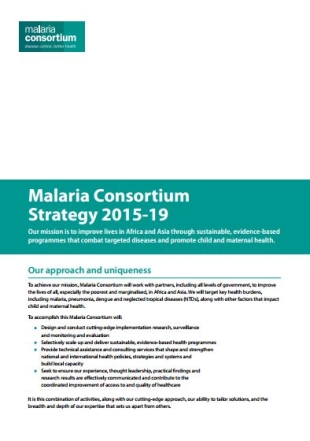 03/02/2017
Annual review
03/02/2017
Annual review
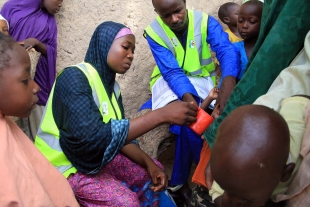 17/01/2017
Newsletter
17/01/2017
Newsletter
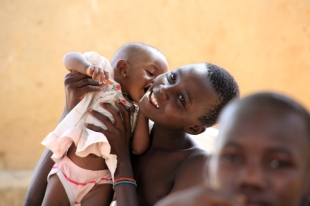 23/12/2016
Newsletter
23/12/2016
Newsletter
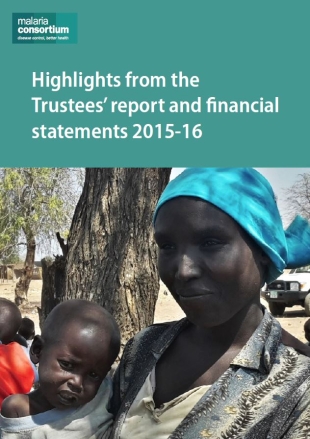 20/11/2016
Annual review
20/11/2016
Annual review
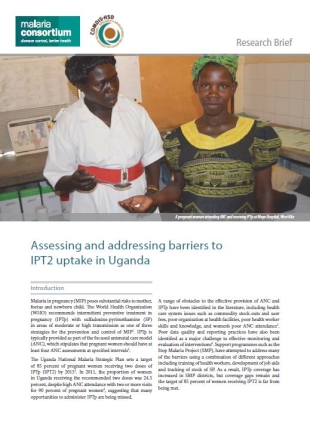 04/11/2016
Research brief
04/11/2016
Research brief
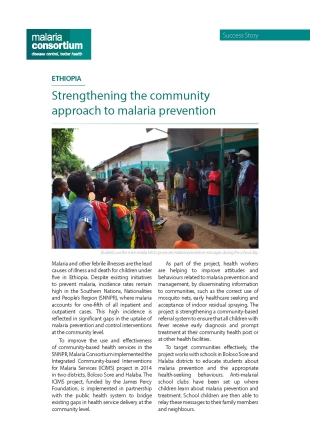 19/09/2016
Case study
19/09/2016
Case study
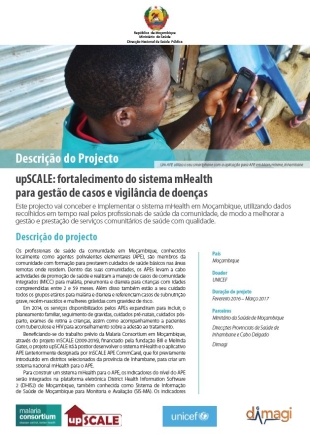 01/09/2016
Project brief
01/09/2016
Project brief
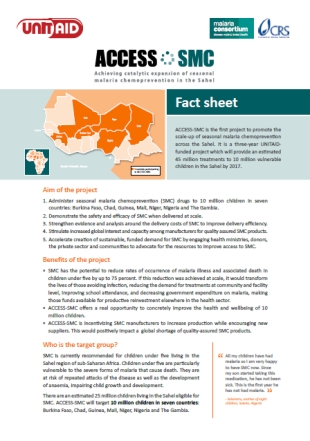 04/07/2016
ACCESS-SMC: SBCC
04/07/2016
ACCESS-SMC: SBCC
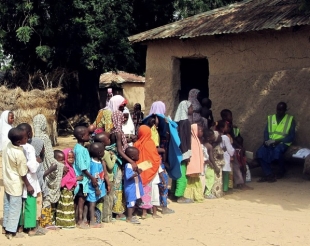 02/07/2016
Newsletter
02/07/2016
Newsletter
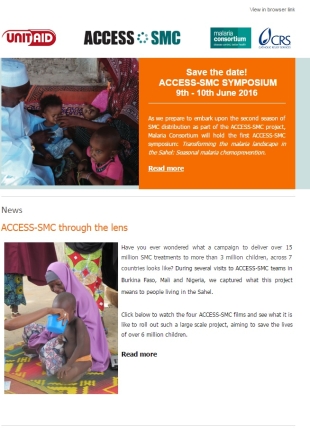 29/04/2016
Newsletter
29/04/2016
Newsletter
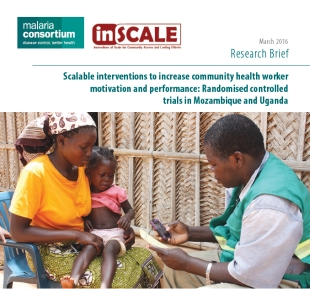 01/03/2016
Research brief
01/03/2016
Research brief
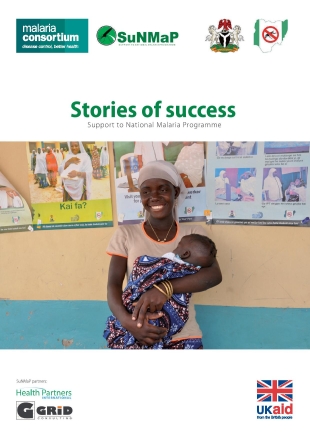 16/02/2016
Case study
16/02/2016
Case study
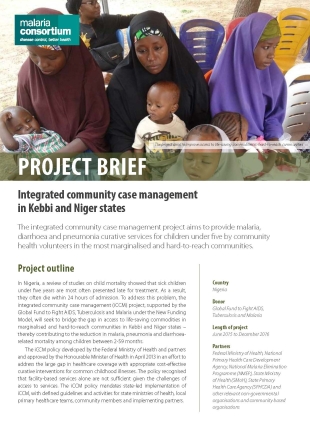 30/10/2015
Project brief
30/10/2015
Project brief
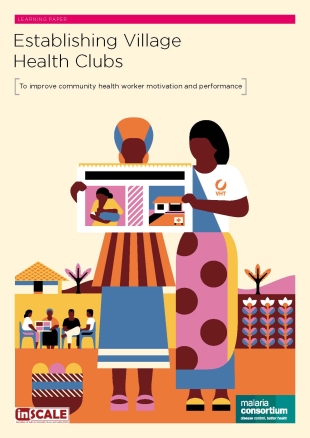 28/10/2015
Learning paper
28/10/2015
Learning paper
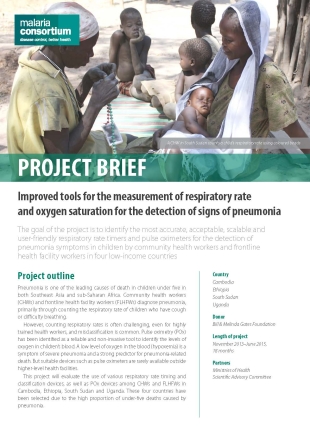 26/10/2015
Project brief
26/10/2015
Project brief
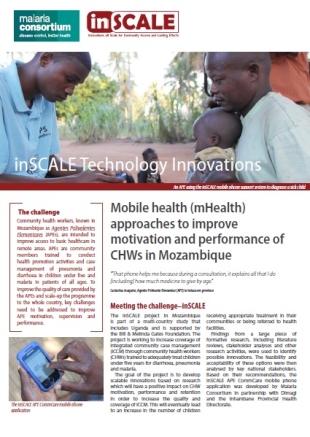 09/11/2014
Technical brief
09/11/2014
Technical brief
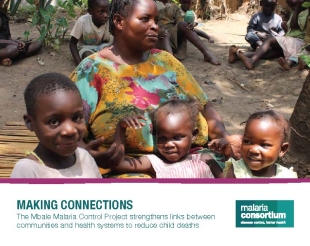 20/08/2014
Project report
20/08/2014
Project report
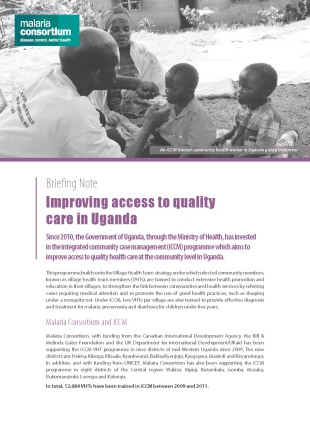 20/03/2014
Technical brief
20/03/2014
Technical brief
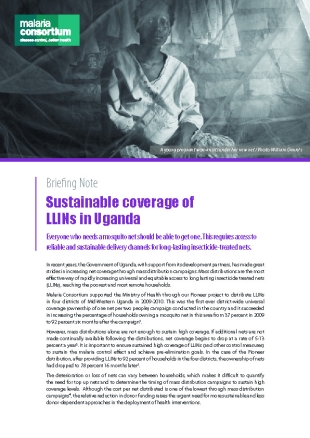 08/01/2014
Technical brief
08/01/2014
Technical brief
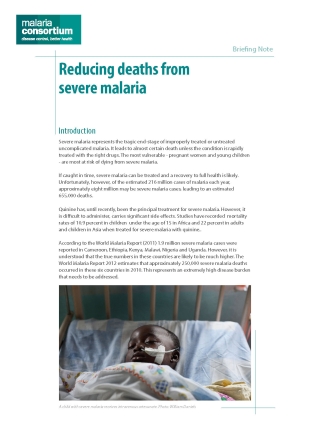 31/12/2013
Technical brief
31/12/2013
Technical brief
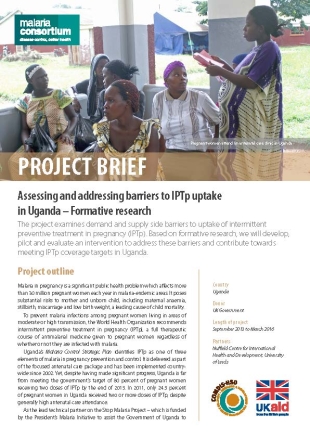 12/11/2013
Project brief
12/11/2013
Project brief
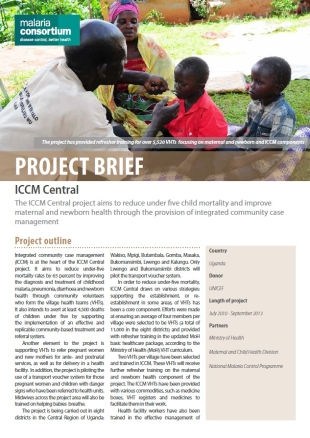 05/09/2013
Project brief
05/09/2013
Project brief
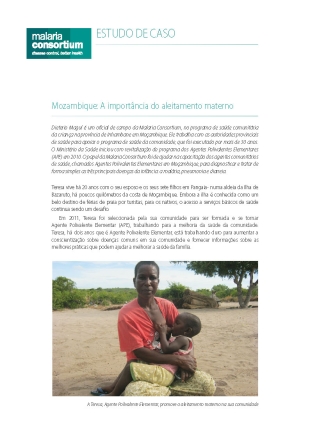 01/07/2013
Case study
01/07/2013
Case study
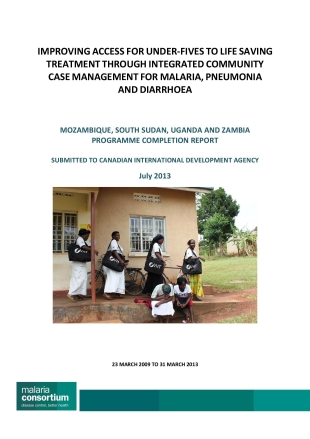 01/07/2013
Project report
01/07/2013
Project report
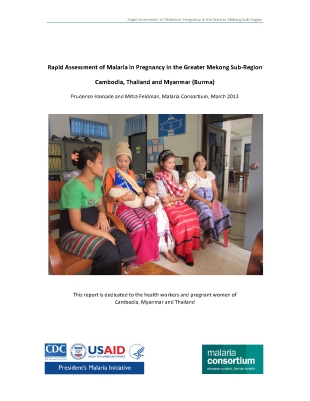 31/03/2013
Project report
31/03/2013
Project report
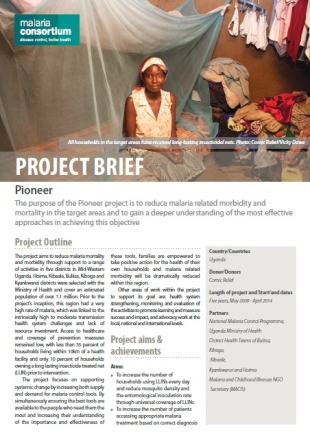 22/03/2013
Project brief
22/03/2013
Project brief
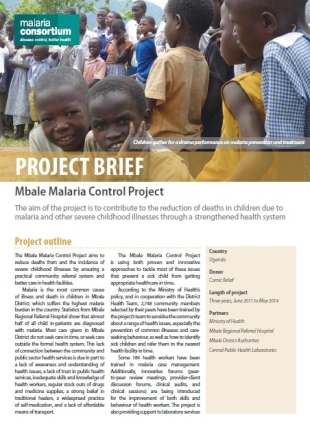 22/03/2013
Project brief
22/03/2013
Project brief
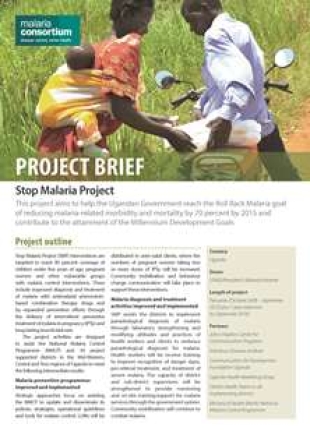 11/03/2013
Project brief
11/03/2013
Project brief
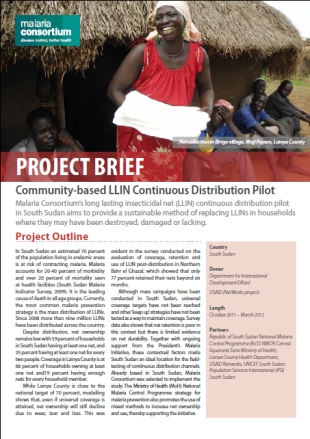 14/02/2013
Project brief
14/02/2013
Project brief
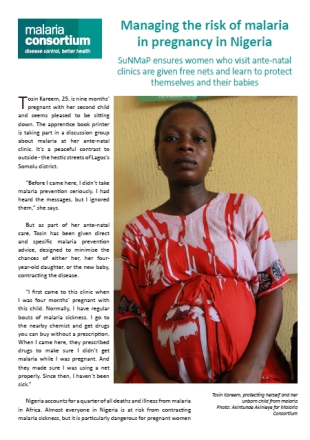 18/04/2012
Case study
18/04/2012
Case study
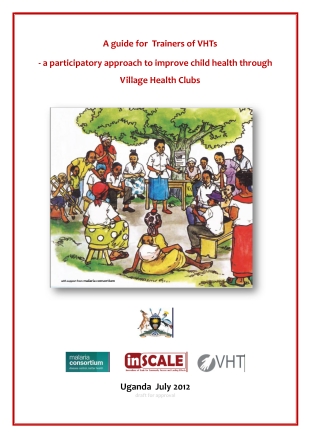 10/01/2012
Training materials
10/01/2012
Training materials
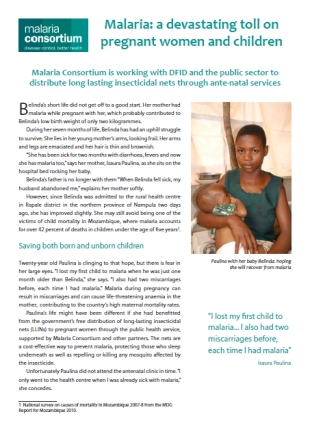 02/12/2011
Case study
02/12/2011
Case study
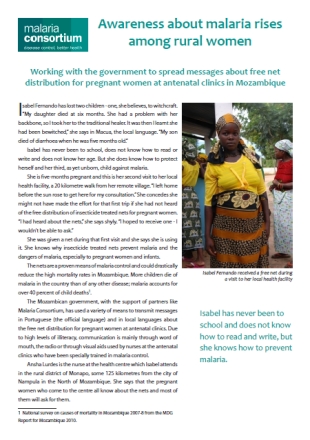 02/12/2011
Case study
02/12/2011
Case study
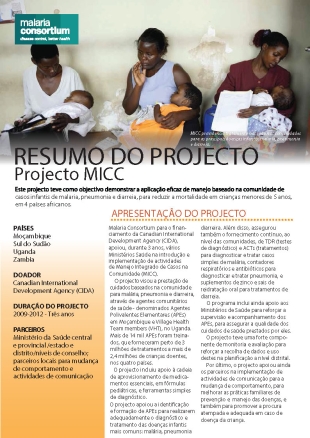 01/11/2010
Project brief
01/11/2010
Project brief
Child and maternal health
 23/05/2022
Capacity statement
23/05/2022
Capacity statement
Malaria Consortium Asia
In Asia, we provide technical assistance and consulting services that shape and strengthen national and international health policies and develop local capacity. 23/05/2022In Asia, we provide technical assistance and consulting services that shape and strengthen national and international health policies and develop local capacity.
 27/08/2021
Research brief
27/08/2021
Research brief
Faisabilité et acceptabilité de l’extension de la chimioprévention du paludisme saisonnier aux enfants de 5–10 ans
Cette étude vise à comprendre les obstacles à la chimioprévention du paludisme saisonnier dans le district de Massaguet, au Tchad. 27/08/2021Cette étude vise à comprendre les obstacles à la chimioprévention du paludisme saisonnier dans le district de Massaguet, au Tchad.
 06/04/2020
Journal article
06/04/2020
Journal article
Community engagement interventions for communicable disease control in low- and lower- middle-income countries: Evidence from a review of systematic reviews
Community engagement interventions may be effective in supporting communicable disease control in low and lower-middle income countries. 06/04/2020Community engagement interventions may be effective in supporting communicable disease control in low and lower-middle income countries.
 07/02/2020
Advocacy brief
07/02/2020
Advocacy brief
Antenatal care: A crucial tool in Ethiopia’s fight against malaria in pregnancy
We echo the World Health Organization’s 2019 call for greater support for those most vulnerable to malaria — pregnant women and children under five. 07/02/2020We echo the World Health Organization’s 2019 call for greater support for those most vulnerable to malaria — pregnant women and children under five.
 05/12/2019
Journal article
05/12/2019
Journal article
More work needs to be done to ensure that better pneumonia diagnostics aids are developed and launched to better support frontline health workers
Malaria Consortium's response to Ansermino et al.'s article 'Are respiratory rate counters really so bad' was published in EClinicalMedicine. 05/12/2019Malaria Consortium's response to Ansermino et al.'s article 'Are respiratory rate counters really so bad' was published in EClinicalMedicine.
 12/11/2019
Project brief
12/11/2019
Project brief
upSCALE: Strengthening mobile health in Mozambique
We provided technical assistance to the Ministry of Health to improve disease surveillance and community-based maternal and child healthcare. 12/11/2019We provided technical assistance to the Ministry of Health to improve disease surveillance and community-based maternal and child healthcare.
 30/10/2019
Project report
30/10/2019
Project report
USAID Malaria Action Program for Districts: Year 3 report
During MAPD's third year, the project overcame a number of additional challenges including prolonged upsurges of malaria in some districts. Read the Year 3 report in full... 30/10/2019During MAPD's third year, the project overcame a number of additional challenges including prolonged upsurges of malaria in some districts. Read the Year 3 report in full...
 14/06/2019
Case study
14/06/2019
Case study
Dr Khin Maung Than's story
As a township medical officer, Dr Khin Maung Than oversees all health initiatives in Wuntho township in the Sagaing region of Myanmar. 14/06/2019As a township medical officer, Dr Khin Maung Than oversees all health initiatives in Wuntho township in the Sagaing region of Myanmar.
 30/03/2019
Capacity statement
30/03/2019
Capacity statement
Malaria Consortium's global capability statement
Our global capability statement describes our approach and expertise, and details the way we work. 30/03/2019Our global capability statement describes our approach and expertise, and details the way we work.
 29/11/2018
Learning brief
29/11/2018
Learning brief
iCCM in Myanmar: Lessons from Sagaing region
From June 2016 to June 2017, Malaria Consortium implemented a pilot project that integrated and scaled up Myanmar's two community case management components to ensure the health system has the… 29/11/2018From June 2016 to June 2017, Malaria Consortium implemented a pilot project that integrated and scaled up Myanmar's two community case management components to ensure the health system has the capacity to respond to all major childhood illnesses. Malaria volunteers were…
 24/09/2018
Insight brief
24/09/2018
Insight brief
Maternal and newborn care: Saving premature babies in Uganda
As part of the Integrated Community Case Management-Maternal and Child Survival (iCCM-MaCS) project, Malaria Consortium provided formal health facilities in Uganda with incubators and established the use of kangaroo mother… 24/09/2018As part of the Integrated Community Case Management-Maternal and Child Survival (iCCM-MaCS) project, Malaria Consortium provided formal health facilities in Uganda with incubators and established the use of kangaroo mother care — a World Health Organization-endorsed alternative to conventional neonatal…
 15/09/2018
Case study
15/09/2018
Case study
Sulphadoxine-pyrimethamine on essential drugs list for preventing malaria in pregnancy
USAID’s Malaria Action Program for Districts influences the Government of Uganda, via the Ministry of Health, to take important steps in improving provision of SP (sulphadoxine-pyrimethamine) – an essential drug… 15/09/2018USAID’s Malaria Action Program for Districts influences the Government of Uganda, via the Ministry of Health, to take important steps in improving provision of SP (sulphadoxine-pyrimethamine) – an essential drug needed for the prevention of malaria in pregnancy...
 30/08/2018
Infographic
30/08/2018
Infographic
Impact: Malaria Consortium and seasonal malaria chemoprevention
Malaria Consortium has been distributing preventive treatments to children under five across the Sahel region to protect them from malaria during the past four rainy seasons. Case-control studies have found… 30/08/2018Malaria Consortium has been distributing preventive treatments to children under five across the Sahel region to protect them from malaria during the past four rainy seasons. Case-control studies have found that one treatment course of seasonal malaria chemoprevention (SMC) per…
 19/07/2018
Journal article
19/07/2018
Journal article
Community understanding of the concept of pre-referral treatment and how this impacts on referral related decision-making following the provision of rectal artesunate: A qualitative study in western Uganda
Background Successful pre-referral treatment with rectal artesunate (RA) for suspected severe malaria requires operational linkages between community health workers (CHWs) and referral facilities, acceptance of pre-referral treatment and adherence to referral… 19/07/2018Background Successful pre-referral treatment with rectal artesunate (RA) for suspected severe malaria requires operational linkages between community health workers (CHWs) and referral facilities, acceptance of pre-referral treatment and adherence to referral practices by CHWs and caregivers. This qualitative study investigated how…
 15/05/2018
Project brief
15/05/2018
Project brief
upSCALE: Strengthening of the mobile health platform to improve quality and coverage of community-based maternal and child health care and disease surveillance in Mozambique
The project aims to refine and expand a mobile health system for Mozambique's national community health worker programme to improve the quality and coverage of community-based health services and overall… 15/05/2018The project aims to refine and expand a mobile health system for Mozambique's national community health worker programme to improve the quality and coverage of community-based health services and overall programme management.
 15/05/2018
Project brief
15/05/2018
Project brief
upSCALE: Fortalecimento do sistema móvel de saúde para melhorar a qualidade e a cobertura dos cuidados comunitários de saúde materno-infantil e vigilância de doenças em Moçambique
Este projecto visa aprimorar e implementar um sistema móvel de saúde digital para o Programa Nacional dos Agentes Polivalentes Elementares em Moçambique, de modo a melhorar a qualidade e cobertura… 15/05/2018Este projecto visa aprimorar e implementar um sistema móvel de saúde digital para o Programa Nacional dos Agentes Polivalentes Elementares em Moçambique, de modo a melhorar a qualidade e cobertura dos cuidados comunitários de saúde e a gestão do programa.
 03/05/2018
Project brief
03/05/2018
Project brief
Integrated community case management in South Sudan
This project aims to improve access to basic health care for children suffering from malaria, diarrhoea, pneumonia and severe acute malnutrition in South Sudan, contributing to a reduction in under… 03/05/2018This project aims to improve access to basic health care for children suffering from malaria, diarrhoea, pneumonia and severe acute malnutrition in South Sudan, contributing to a reduction in under five child mortality in the country.
 12/04/2018
Journal article
12/04/2018
Journal article
Universal versus conditional third day follow-up visit for children with nonsevere unclassified fever at the community level in Ethiopia: Protocol for a cluster randomized noninferiority trial
BackgroundUnder the World Health Organization’s integrated community case management strategy, febrile children seen by community health workers (on day one) without a diagnosable illness and without danger signs are advised… 12/04/2018BackgroundUnder the World Health Organization’s integrated community case management strategy, febrile children seen by community health workers (on day one) without a diagnosable illness and without danger signs are advised to return on day three, regardless of symptom resolution. This…
 22/03/2018
Journal article
22/03/2018
Journal article
Impact of a 15-month multi-channel continuous distribution pilot on ITN ownership and access in Eastern Region, Ghana
Background: Insecticide-treated nets are a key intervention for malaria prevention. While mass distribution can rapidly scale up ITN coverage, multiple channels may be needed to sustain high levels of ITN access… 22/03/2018Background: Insecticide-treated nets are a key intervention for malaria prevention. While mass distribution can rapidly scale up ITN coverage, multiple channels may be needed to sustain high levels of ITN access and ownership. In Ghana's Eastern Region, a continuous ITN distribution…
 10/03/2018
Case study
10/03/2018
Case study
Innovations in the net distribution coordination: the use of WhatsApp
The second Uganda universal net coverage campaign, launched in February 2017, saw the innovative use of the messenger application – WhatsApp – improve central coordination, make decision-making quicker, and promote… 10/03/2018The second Uganda universal net coverage campaign, launched in February 2017, saw the innovative use of the messenger application – WhatsApp – improve central coordination, make decision-making quicker, and promote information sharing during the campaign...
 06/03/2018
Case study
06/03/2018
Case study
Le récit de Gassara: “Si la CPS est interrompue, les systèmes de santé risquent d'être débordés.”
ACCESS-SMC est un projet sur trois ans, financé par UNITAID, qui soutient les Programmes Nationaux de Lutte contre le Paludisme pour mener à bien le premier déploiement à grande échelle… 06/03/2018ACCESS-SMC est un projet sur trois ans, financé par UNITAID, qui soutient les Programmes Nationaux de Lutte contre le Paludisme pour mener à bien le premier déploiement à grande échelle de la Chimioprévention du paludisme saisonnier (CPS) et ainsi sauver…
 06/03/2018
Case study
06/03/2018
Case study
Le récit d’Hajara : “Si la distribution de CPS s’arrête, le paludisme va revenir, comme avant”
ACCESS-SMC est un projet sur trois ans, financé par UNITAID, qui soutient les Programmes Nationaux de Lutte contre le Paludisme pour mener à bien le premier déploiement à grande échelle… 06/03/2018ACCESS-SMC est un projet sur trois ans, financé par UNITAID, qui soutient les Programmes Nationaux de Lutte contre le Paludisme pour mener à bien le premier déploiement à grande échelle de la Chimioprévention du paludisme saisonnier (CPS) et ainsi sauver…
 05/03/2018
Case study
05/03/2018
Case study
Le récit de Bénédicte: “Mes enfants ne tombent plus malades pendant la saison des pluies. Je peux désormais économiser un peu d’argent.”
ACCESS-SMC est un projet sur trois ans, financé par UNITAID, qui soutient les Programmes Nationaux de Lutte contre le Paludisme pour mener à bien le premier déploiement à grande échelle… 05/03/2018ACCESS-SMC est un projet sur trois ans, financé par UNITAID, qui soutient les Programmes Nationaux de Lutte contre le Paludisme pour mener à bien le premier déploiement à grande échelle de la Chimioprévention du paludisme saisonnier (CPS) et ainsi sauver…
 28/02/2018
Newsletter
28/02/2018
Newsletter
A catalyst project comes to an end
Through ACCESS-SMC — a three-year UNITAID-funded project — Malaria Consortium and Catholic Relief Services supported National Malaria Control Programmes to scale up access to seasonal malaria chemoprevention and save children’s… 28/02/2018Through ACCESS-SMC — a three-year UNITAID-funded project — Malaria Consortium and Catholic Relief Services supported National Malaria Control Programmes to scale up access to seasonal malaria chemoprevention and save children’s lives across seven countries in the Sahel. This final newsletter…
 27/02/2018
Case study
27/02/2018
Case study
Gassara’s story: “Health systems risk being overwhelmed by malaria if seasonal malaria chemoprevention is discontinued.”
This case study from Chad highlights the impact of seasonal malaria chemoprevention. Through ACCESS-SMC — a three-year UNITAID-funded project — Malaria Consortium and Catholic Relief Services supported National Malaria Control… 27/02/2018This case study from Chad highlights the impact of seasonal malaria chemoprevention. Through ACCESS-SMC — a three-year UNITAID-funded project — Malaria Consortium and Catholic Relief Services supported National Malaria Control Programmes to scale up access to seasonal malaria chemoprevention and…
 08/02/2018
Infographic
08/02/2018
Infographic
Communications to change attitudes to malaria in Ethiopia
Malaria Consortium supported the Southern Nations, Nationalities and Peoples’ Region of Ethiopia to improve the use and quality of community-based health services under the James Percy Foundation-funded ICIMS project. Through… 08/02/2018Malaria Consortium supported the Southern Nations, Nationalities and Peoples’ Region of Ethiopia to improve the use and quality of community-based health services under the James Percy Foundation-funded ICIMS project. Through social and behaviour change activities, the project increased the uptake…
 07/02/2018
Project report
07/02/2018
Project report
Prevenção e controlo da malária em Moçambique: expansão para acesso universal com participação comunitária 2011-2017
Este resumo do Projecto de Prevenção e Controlo da Malária em Moçambique apresenta os objectivos, estratégias e principais resultados obtidos. Este projecto visou contribuir para uma redução dos casos de… 07/02/2018Este resumo do Projecto de Prevenção e Controlo da Malária em Moçambique apresenta os objectivos, estratégias e principais resultados obtidos. Este projecto visou contribuir para uma redução dos casos de malária no país através de uma combinação de intervenções, que…
 02/02/2018
Case study
02/02/2018
Case study
Bénédicte’s story: “My children do not get sick during the rainy season anymore.”
This case study from Burkina Faso highlights the impact of seasonal malaria chemoprevention. Through ACCESS-SMC — a three-year UNITAID-funded project — Malaria Consortium and Catholic Relief Services supported National Malaria… 02/02/2018This case study from Burkina Faso highlights the impact of seasonal malaria chemoprevention. Through ACCESS-SMC — a three-year UNITAID-funded project — Malaria Consortium and Catholic Relief Services supported National Malaria Control Programmes to scale up access to seasonal malaria chemoprevention…
 29/01/2018
Case study
29/01/2018
Case study
Hajara’s story: “If SMC distribution stops, malaria will come back as before.”
This case study from Nigeria highlights the impact of seasonal malaria chemoprevention. Through ACCESS-SMC — a three-year UNITAID-funded project — Malaria Consortium and Catholic Relief Services supported National Malaria Control… 29/01/2018This case study from Nigeria highlights the impact of seasonal malaria chemoprevention. Through ACCESS-SMC — a three-year UNITAID-funded project — Malaria Consortium and Catholic Relief Services supported National Malaria Control Programmes to scale up access to seasonal malaria chemoprevention and…
 07/12/2017
Newsletter
07/12/2017
Newsletter
Catch up: Malaria Consortium at ASTMH 2017
During the 66th Annual Meeting of the American Society of Tropical Medicine in Baltimore (USA) in 2017, our experts gave presentations on malaria surveillance, case management, pneumonia diagnostics and managing… 07/12/2017During the 66th Annual Meeting of the American Society of Tropical Medicine in Baltimore (USA) in 2017, our experts gave presentations on malaria surveillance, case management, pneumonia diagnostics and managing unclassified fever.
 13/11/2017
Technical brief
13/11/2017
Technical brief
Seasonal malaria chemoprevention at scale: Saving lives
Malaria is preventable and treatable, but many children in Africa still die from malaria before their fifth birthday. The ACCESS-SMC project has proven the feasibility, safety and effectiveness of seasonal… 13/11/2017Malaria is preventable and treatable, but many children in Africa still die from malaria before their fifth birthday. The ACCESS-SMC project has proven the feasibility, safety and effectiveness of seasonal malaria chemoprevention at scale. An estimated gap of 12 to…
 17/10/2017
Annual review
17/10/2017
Annual review
Trustees' report and financial statements for the year to 31 March 2017
Malaria Consortium's Trustees present their report and the audited financial statements for the year which ended 31 March 2017. 17/10/2017Malaria Consortium's Trustees present their report and the audited financial statements for the year which ended 31 March 2017.
 17/10/2017
Annual review
17/10/2017
Annual review
Highlights of the year 2016–2017
Our 2016–2017 highlights present a selection of key achievements and challenges for the year. The full Trustees’ report and financial statements for the year to 31 March 2017 is available… 17/10/2017Our 2016–2017 highlights present a selection of key achievements and challenges for the year. The full Trustees’ report and financial statements for the year to 31 March 2017 is available here. View interactive version
 15/10/2017
Case study
15/10/2017
Case study
Mothers receive the right number of IPTp doses to prevent malaria in pregnancy
USAID’s Malaria Action Program for Districts in Uganda has been improving the uptake of intermittent preventive treatment for malaria by pregnant women visiting antenatal centers... 15/10/2017USAID’s Malaria Action Program for Districts in Uganda has been improving the uptake of intermittent preventive treatment for malaria by pregnant women visiting antenatal centers...
 29/09/2017
Newsletter
29/09/2017
Newsletter
ACCESS-SMC September 2017 newsletter
Malaria Consortium has achieved high coverage of seasonal malaria chemoprevention in Burkina Faso, Chad and Nigeria. In Burkina Faso and Chad we are even reaching more children than initially targeted.… 29/09/2017Malaria Consortium has achieved high coverage of seasonal malaria chemoprevention in Burkina Faso, Chad and Nigeria. In Burkina Faso and Chad we are even reaching more children than initially targeted. Read about the major strides the ACCESS-SMC project is making…
 31/07/2017
Case study
31/07/2017
Case study
Reaching all children, no matter what
ACCESS-SMC is a three-year UNITAID-funded project, led by Malaria Consortium in partnership with Catholic Relief Services, which is supporting National Malaria Control Programmes to scale up access to seasonal malaria… 31/07/2017ACCESS-SMC is a three-year UNITAID-funded project, led by Malaria Consortium in partnership with Catholic Relief Services, which is supporting National Malaria Control Programmes to scale up access to seasonal malaria chemoprevention across seven countries in the Sahel. This case study…
 29/06/2017
Newsletter
29/06/2017
Newsletter
ACCESS-SMC June 2017 newsletter
ACCESS-SMC brought together leaders in malaria prevention to reach over 6.4 million children in seven countries across the Sahel in 2016. This year, ACCESS-SMC will implement one last season to… 29/06/2017ACCESS-SMC brought together leaders in malaria prevention to reach over 6.4 million children in seven countries across the Sahel in 2016. This year, ACCESS-SMC will implement one last season to reach roughly 3.9 million children in Burkina Faso, Chad and…
 02/05/2017
Case study
02/05/2017
Case study
Awareness raising activities increase community engagement in malaria prevention
In Uganda – where the malaria burden is among the highest in the world – raising public awareness of the disease is helping to contribute to the prevention and treatment… 02/05/2017In Uganda – where the malaria burden is among the highest in the world – raising public awareness of the disease is helping to contribute to the prevention and treatment of malaria in communities...
 25/04/2017
Newsletter
25/04/2017
Newsletter
ACCESS-SMC April 2017 newsletter
ACCESS-SMC's impact in the fight against malaria has led to seasonal malaria chemoprevention becoming a key intervention in eligible countries' national malaria control strategic plans. Preparation for the 2017 campaign… 25/04/2017ACCESS-SMC's impact in the fight against malaria has led to seasonal malaria chemoprevention becoming a key intervention in eligible countries' national malaria control strategic plans. Preparation for the 2017 campaign has begun to ensure continued high coverage as donors, governments,…
 29/03/2017
Research brief
29/03/2017
Research brief
Strengthening service delivery for malaria in pregnancy: A mobile health pilot intervention in West Nile, Uganda
To address key barriers to the uptake of intermittent preventive treatment for malaria in pregnancy (IPTp), Malaria Consortium developed a pilot intervention that trained health workers on malaria in pregnancy.… 29/03/2017To address key barriers to the uptake of intermittent preventive treatment for malaria in pregnancy (IPTp), Malaria Consortium developed a pilot intervention that trained health workers on malaria in pregnancy. Following the training, they received text messages reinforcing the training…
 03/02/2017
Annual review
03/02/2017
Annual review
Malaria Consortium strategy 2015–2019
To achieve our mission, Malaria Consortium will work with partners — including all levels of government — to improve the lives of all in Africa and Asia, especially the poorest… 03/02/2017To achieve our mission, Malaria Consortium will work with partners — including all levels of government — to improve the lives of all in Africa and Asia, especially the poorest and most marginalised. We will target key health burdens, including…
 17/01/2017
Newsletter
17/01/2017
Newsletter
Newsletter: Top moments of 2016
In 2016, we continued to help improve lives in Africa and Asia through sustainable, evidence-based programmes that combat targeted diseases and promote child and maternal health with the support of… 17/01/2017In 2016, we continued to help improve lives in Africa and Asia through sustainable, evidence-based programmes that combat targeted diseases and promote child and maternal health with the support of our donors, partners and collaborators. Take a look at our…
 23/12/2016
Newsletter
23/12/2016
Newsletter
ACCESS-SMC December newsletter
As the 2016 ACCESS-SMC campaign comes to a close, over six million children in the Sahel region have been successfully administered seasonal malaria chemoprevention. Project Director Diego Morso looks back… 23/12/2016As the 2016 ACCESS-SMC campaign comes to a close, over six million children in the Sahel region have been successfully administered seasonal malaria chemoprevention. Project Director Diego Morso looks back at what has been accomplished.
 20/11/2016
Annual review
20/11/2016
Annual review
Highlights from the trustees report and financial statements 2015–2016
During the first operating year of Malaria Consortium’s 2015–2019 strategy, we continued to deliver on our mission to improve lives in Africa and Asia through sustainable, evidence-based programmes that combat… 20/11/2016During the first operating year of Malaria Consortium’s 2015–2019 strategy, we continued to deliver on our mission to improve lives in Africa and Asia through sustainable, evidence-based programmes that combat targeted diseases and promote child and maternal health. This review…
 04/11/2016
Research brief
04/11/2016
Research brief
Assessing and addressing barriers to the uptake of intermittent preventive treatment in pregnancy in Uganda
This research brief evaluates the uptake of intermittent preventive treatment in pregnancy (IPTp) in areas of medium or high malaria transmission. IPTp is typically provided as part of the focused… 04/11/2016This research brief evaluates the uptake of intermittent preventive treatment in pregnancy (IPTp) in areas of medium or high malaria transmission. IPTp is typically provided as part of the focused antenatal care model, yet various issues are hindering the effective…
 19/09/2016
Case study
19/09/2016
Case study
Strengthening the community approach to malaria prevention
To bridge the gaps in health service delivery at the community level, Malaria Consortium is implementing the Integrated Community-based Interventions for Malaria Services project from 2014–2017 in the Southern Nations,… 19/09/2016To bridge the gaps in health service delivery at the community level, Malaria Consortium is implementing the Integrated Community-based Interventions for Malaria Services project from 2014–2017 in the Southern Nations, Nationalities and People’s Region (SNNPR), Ethiopia. This story highlights the…
 01/09/2016
Project brief
01/09/2016
Project brief
upSCALE: fortalecimento do sistema mHealth para gestão de casos e vigilância de doenças
Este projecto vai conceber e implementar o sistema mHealth em Moçambique, utilizando dados recolhidos em tempo real pelos profi ssionais de saúde da comunidade, de modo a melhorar a gestão… 01/09/2016Este projecto vai conceber e implementar o sistema mHealth em Moçambique, utilizando dados recolhidos em tempo real pelos profi ssionais de saúde da comunidade, de modo a melhorar a gestão e distribuição de serviços de saúde com qualidade e em…
 04/07/2016
ACCESS-SMC: SBCC
04/07/2016
ACCESS-SMC: SBCC
ACCESS-SMC factsheet
ACCESS-SMC is a UNITAID-funded project, led by Malaria Consortium in partnership with Catholic Relief Services. The project supports National Malaria Control Programmes to scale up access to seasonal malaria chemoprevention… 04/07/2016ACCESS-SMC is a UNITAID-funded project, led by Malaria Consortium in partnership with Catholic Relief Services. The project supports National Malaria Control Programmes to scale up access to seasonal malaria chemoprevention across the Sahel. This factsheet provides an introduction to the…
 02/07/2016
Newsletter
02/07/2016
Newsletter
Saving lives in the Sahel
In the Sahel region of sub-Saharan Africa, 60 percent of malaria cases occur during the rainy season. Among those most at risk are children under five. Seasonal malaria chemoprevention is… 02/07/2016In the Sahel region of sub-Saharan Africa, 60 percent of malaria cases occur during the rainy season. Among those most at risk are children under five. Seasonal malaria chemoprevention is a course of medicine that is up to 75 percent…
 29/04/2016
Newsletter
29/04/2016
Newsletter
ACCESS-SMC newsletter
As we prepare for the second season of seasonal malaria chemoprevention distribution, Malaria Consortium will hold the first ACCESS-SMC symposium 'Transforming the malaria landscape in the Sahel: Seasonal malaria chemoprevention'. 29/04/2016As we prepare for the second season of seasonal malaria chemoprevention distribution, Malaria Consortium will hold the first ACCESS-SMC symposium 'Transforming the malaria landscape in the Sahel: Seasonal malaria chemoprevention'.
 01/03/2016
Research brief
01/03/2016
Research brief
Scalable interventions to increase community health worker motivation and performance: Randomised controlled trials in Mozambique and Uganda
When properly trained and equipped, community health workers (CHWs) in Africa have the potential to reduce child deaths from malaria, pneumonia and diarrhoea by up to 60 percent through delivering… 01/03/2016When properly trained and equipped, community health workers (CHWs) in Africa have the potential to reduce child deaths from malaria, pneumonia and diarrhoea by up to 60 percent through delivering integrated community case management (iCCM). The Innovations at Scale for…
 16/02/2016
Case study
16/02/2016
Case study
Support to National Malaria Programme: Stories of success
The Support to National Malaria Programme (SuNMaP) project aimed to improve malaria outcomes and strengthen Nigeria’s health system, resulting in over 48,000 lives saved in 10 states. These stories capture… 16/02/2016The Support to National Malaria Programme (SuNMaP) project aimed to improve malaria outcomes and strengthen Nigeria’s health system, resulting in over 48,000 lives saved in 10 states. These stories capture the intervention’s effect on the lives of individual Nigerians across…
 30/10/2015
Project brief
30/10/2015
Project brief
Integrated community case management in Kebbi and Niger states
The integrated community case management project aims to provide malaria, diarrhoea and pneumonia curative services for children under five by community health volunteers in the most marginalised and hard-to-reach communities.… 30/10/2015The integrated community case management project aims to provide malaria, diarrhoea and pneumonia curative services for children under five by community health volunteers in the most marginalised and hard-to-reach communities.
 28/10/2015
Learning paper
28/10/2015
Learning paper
Establishing Village Health Clubs to improve community health worker motivation and performance
Malaria Consortium’s inSCALE project has been supporting the scale-up of quality integrated community case management programmes to improve child health in Uganda. This paper details the process of establishing village… 28/10/2015Malaria Consortium’s inSCALE project has been supporting the scale-up of quality integrated community case management programmes to improve child health in Uganda. This paper details the process of establishing village health clubs to improve the motivation and performance of community…
 26/10/2015
Project brief
26/10/2015
Project brief
Improved tools for the measurement of respiratory rate and oxygen saturation for the detection of signs of pneumonia
This project aims to identify the most accurate, acceptable, scalable and user-friendly respiratory rate timers and pulse oximeters for the detection of pneumonia symptoms in children by community health… 26/10/2015This project aims to identify the most accurate, acceptable, scalable and user-friendly respiratory rate timers and pulse oximeters for the detection of pneumonia symptoms in children by community health workers and frontline health facility workers in four low-income countries.…
 09/11/2014
Technical brief
09/11/2014
Technical brief
Mobile health approaches to improve motivation and performance of community health workers in Mozambique
This brief discusses the impact of the inSCALE APE CommCare mobile phone application on community health worker motivation, performance and retention, with the aim to increase the quality and coverage… 09/11/2014This brief discusses the impact of the inSCALE APE CommCare mobile phone application on community health worker motivation, performance and retention, with the aim to increase the quality and coverage of integrated community case management in Mozambique. The application walks…
12/09/2014
Project report
Pneumonia Diagnostics Scientific Advisory Committee meeting report June 2014
This report summarises the discussion at the Scientific Advisory Committee meeting on the evaluation of respiratory rate and pulse oximetry devices for the diagnosis of pneumonia in children at community… 12/09/2014This report summarises the discussion at the Scientific Advisory Committee meeting on the evaluation of respiratory rate and pulse oximetry devices for the diagnosis of pneumonia in children at community and first level health facilities held in Geneva in June…
 20/08/2014
Project report
20/08/2014
Project report
Making connections: The Mbale malaria control project strengthens links between communities and health systems to reduce child deaths
This report showcases the impact of our Mbale malaria control project through the voices of implementers and beneficiaries. The project ran between 2011 and 2015, and aimed to contribute to… 20/08/2014This report showcases the impact of our Mbale malaria control project through the voices of implementers and beneficiaries. The project ran between 2011 and 2015, and aimed to contribute to the reduction of deaths in children due to malaria and…
 20/03/2014
Technical brief
20/03/2014
Technical brief
Improving access to quality care in Uganda
This Briefing Note describes a baseline and an endline survey conducted by Malaria Consortium to measure the impact of iCCM on improving health seeking behaviour and access to treatment for… 20/03/2014This Briefing Note describes a baseline and an endline survey conducted by Malaria Consortium to measure the impact of iCCM on improving health seeking behaviour and access to treatment for children in two regions. The surveys aimed to establish whether…
 08/01/2014
Technical brief
08/01/2014
Technical brief
Sustainable coverage of LLINs in Uganda
This Briefing Note describes Malaria Consortium's support to the Ministry of Health through the Pioneer project to distribute LLINs in four districts of Mid-Western Uganda in 2009-2010. It dicusses access… 08/01/2014This Briefing Note describes Malaria Consortium's support to the Ministry of Health through the Pioneer project to distribute LLINs in four districts of Mid-Western Uganda in 2009-2010. It dicusses access to reliable and sustainable delivery channels for long lasting insecticide…
 31/12/2013
Technical brief
31/12/2013
Technical brief
Reducing deaths from severe malaria
This Briefing Note describers a project by a consortium of partners, comprising Medicines for Malaria Venture, Clinton Health Access Initiatve and Malaria Consortium, to strengthen the market to accelerate access… 31/12/2013This Briefing Note describers a project by a consortium of partners, comprising Medicines for Malaria Venture, Clinton Health Access Initiatve and Malaria Consortium, to strengthen the market to accelerate access to and uptake of injectable artesunate. Funded by UNITAID for…
 12/11/2013
Project brief
12/11/2013
Project brief
Assessing and addressing barriers to the uptake of intermittent preventive treatment in pregnancy in Uganda
This project studied demand and supply side barriers to the uptake of intermittent preventive treatment in pregnancy (IPTp). Based on the findings of the formative research, an intervention was developed… 12/11/2013This project studied demand and supply side barriers to the uptake of intermittent preventive treatment in pregnancy (IPTp). Based on the findings of the formative research, an intervention was developed and piloted. The intervention is currently being evaluated to assess…
 05/09/2013
Project brief
05/09/2013
Project brief
Uganda: ICCM Central
This project in Uganda's Central region aims to reduce under five child mortality and improve maternal and newborn health through the provision of integrated community case management. 05/09/2013This project in Uganda's Central region aims to reduce under five child mortality and improve maternal and newborn health through the provision of integrated community case management.
 01/07/2013
Case study
01/07/2013
Case study
Mozambique: A importância do aleitamento materno
Dieterio Magul é um oficial de campo da Malaria Consortium, no programa de saúde comunitária da criança na província de Inhambane em Moçambique. Ele trabalha com as autoridades provinciais de… 01/07/2013Dieterio Magul é um oficial de campo da Malaria Consortium, no programa de saúde comunitária da criança na província de Inhambane em Moçambique. Ele trabalha com as autoridades provinciais de saúde para apoiar o programa de saúde da comunidade, que…
 01/07/2013
Project report
01/07/2013
Project report
Improving access for under-fives to life saving treatment through integrated community case management for malaria, pneumonia and diarrhoea
This is the final project report for the Canadian International Development Agency (CIDA) grant to Malaria Consortium for the project “Improving access for under-fives to life saving treatment through integrated… 01/07/2013This is the final project report for the Canadian International Development Agency (CIDA) grant to Malaria Consortium for the project “Improving access for under-fives to life saving treatment through integrated community case management for malaria, pneumonia and diarrhoea”, which was…
 31/03/2013
Project report
31/03/2013
Project report
Rapid Assessment of Malaria in Pregnancy in the Greater Mekong Sub-Region Cambodia, Thailand and Myanmar
31/03/2013 22/03/2013
Project brief
22/03/2013
Project brief
Pioneer Project
This is a project brief on Malaria Consortium's Pioneer Project, which aims to reduce malaria related morbidity and mortality in the target areas and to gain a deeper understanding of… 22/03/2013This is a project brief on Malaria Consortium's Pioneer Project, which aims to reduce malaria related morbidity and mortality in the target areas and to gain a deeper understanding of the most effective approaches in achieving this objective.
 22/03/2013
Project brief
22/03/2013
Project brief
Mbale Malaria Control Project
This is a project brief describing the Mbale Malaria Control Project, which aims to contribute to the reduction of deaths in children due to malaria and other severe childhood illnesses… 22/03/2013This is a project brief describing the Mbale Malaria Control Project, which aims to contribute to the reduction of deaths in children due to malaria and other severe childhood illnesses through a strengthened health system.
 11/03/2013
Project brief
11/03/2013
Project brief
Stop Malaria Project - Uganda
This project aims to help the Ugandan Government reach the Roll Back Malaria goal of reducing malaria-related morbidity and mortality by 70 percent by 2015 and contribute to the attainment… 11/03/2013This project aims to help the Ugandan Government reach the Roll Back Malaria goal of reducing malaria-related morbidity and mortality by 70 percent by 2015 and contribute to the attainment of the Millennium Development Goals. It is funded by USAID/President's…
 14/02/2013
Project brief
14/02/2013
Project brief
South Sudan: Community-based LLIN Continuous Distribution Pilot
This is a project brief on Malaria Consortium's pilot project to establish a community-based continuous distribution system of long lasting insecticide nets (LLINs) in South Sudan. 14/02/2013This is a project brief on Malaria Consortium's pilot project to establish a community-based continuous distribution system of long lasting insecticide nets (LLINs) in South Sudan.
 18/04/2012
Case study
18/04/2012
Case study
Managing the risk of malaria in pregnancy in Nigeria
Through Malaria Consortium's coordination of Nigeria's Support to National Malaria Programme (SuNMaP), Tosin Kareem, pregnant with her second child, receives advice and a long lasting insecticidal net (LLIN) as a… 18/04/2012Through Malaria Consortium's coordination of Nigeria's Support to National Malaria Programme (SuNMaP), Tosin Kareem, pregnant with her second child, receives advice and a long lasting insecticidal net (LLIN) as a part of her antenatal healthcare.
 10/01/2012
Training materials
10/01/2012
Training materials
A guide for trainers of VHTs: participatory approach to improve child health through village health clubs
Village health teams (VHTs) can play an important role in reducing the number of child deaths in Ugandan communities. In order to achieve this, they need to be properly trained,… 10/01/2012Village health teams (VHTs) can play an important role in reducing the number of child deaths in Ugandan communities. In order to achieve this, they need to be properly trained, supported and motivated. VHT performance and motivation is influenced by…
 02/12/2011
Case study
02/12/2011
Case study
Mozambique LLINs for Pregnant Women
Malaria Consortium is working with the UK's Department for International Development (DFID) and the public sector to distribute long lasting insecticidal nets through ante-natal services. 02/12/2011Malaria Consortium is working with the UK's Department for International Development (DFID) and the public sector to distribute long lasting insecticidal nets through ante-natal services.
 02/12/2011
Case study
02/12/2011
Case study
Mozambique Pregnant Women Learn about Malaria
Malaria Consortium is working with the government to spread messages about free net distribution for pregnant women at antenatal clinics in Mozambique. 02/12/2011Malaria Consortium is working with the government to spread messages about free net distribution for pregnant women at antenatal clinics in Mozambique.
 01/11/2010
Project brief
01/11/2010
Project brief
